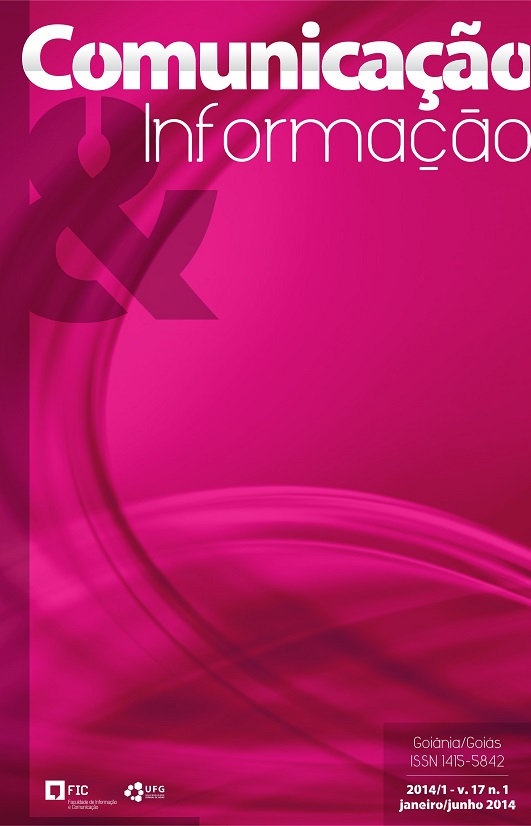The cultural heritage process and the cyberculture: cyber-mobilization via groups on the social network Facebook
DOI:
https://doi.org/10.5216/cei.v17i1.27994Keywords:
Cultural heritage preservation. Cyberculture. Mobilization at the cyberspace. Social network Facebook.Abstract
This article is constructed to observe questions around the institutionalization of cultural heritage in a time of post-modernity, with emphasis on the cyberculture phenomenon. The research takes as basis the ideas of Llorenç Prats about the agents that have the power to institutionalize the cultural heritage, taking this category as a political power. It is possible to see that since the advent of the cyberspace, people have got different possibilities to organize and mobilize their demands of cultural heritage preservation. This situations, when a group of the take the power to themselves, can be observed at groups at the social network Facebook, a digital place where the community can get organized among cultural heritage demands, to build actions that have the possibility of actualize the preservation, scenario that brings new issues to the ideas of Prats.Downloads
Published
How to Cite
Issue
Section
License
Os autores dos trabalhos publicados na revista Comunicação e Informação retêm os direitos autorais sem restrições e concedem à revista o direito de primeira publicação, com o trabalho simultâneo licenciado sob a Licença Creative Commons Atribuição-NãoComercial que permite o compartilhamento do trabalho para fins não comerciais com reconhecimento da autoria e o privilégio de publicação primeiramente por esta revista. Caso o texto venha a ser publicado posteriormente em outro veículo, solicita-se aos autores informar que o mesmo foi originalmente publicado como artigo na revista Perspectiva, bem como citar as referências bibliográficas completas dessa publicação.
Os direitos autorais dos artigos pertencem aos autores e o conteúdo dos artigos assinados é de responsabilidade exclusiva dos autores.
A revista se reserva o direito de efetuar, nos originais, alterações de ordem normativa, ortográfica e gramatical, com o intuito de manter o padrão culto da língua, respeitando, porém, o estilo dos autores.
A revista também se reserva o direito de traduzir o artigo, no todo ou em parte, para o inglês ou para o português, dependendo do idioma em que o artigo tenha sido escrito originalmente.



